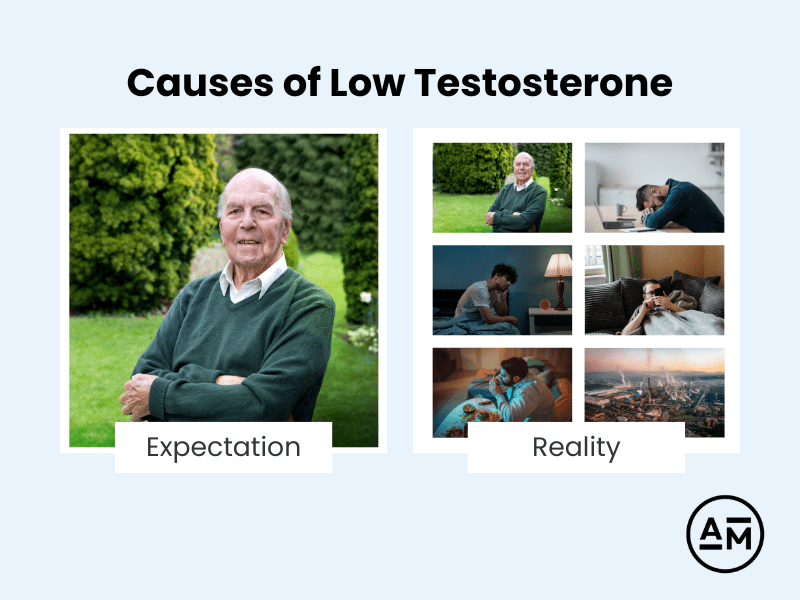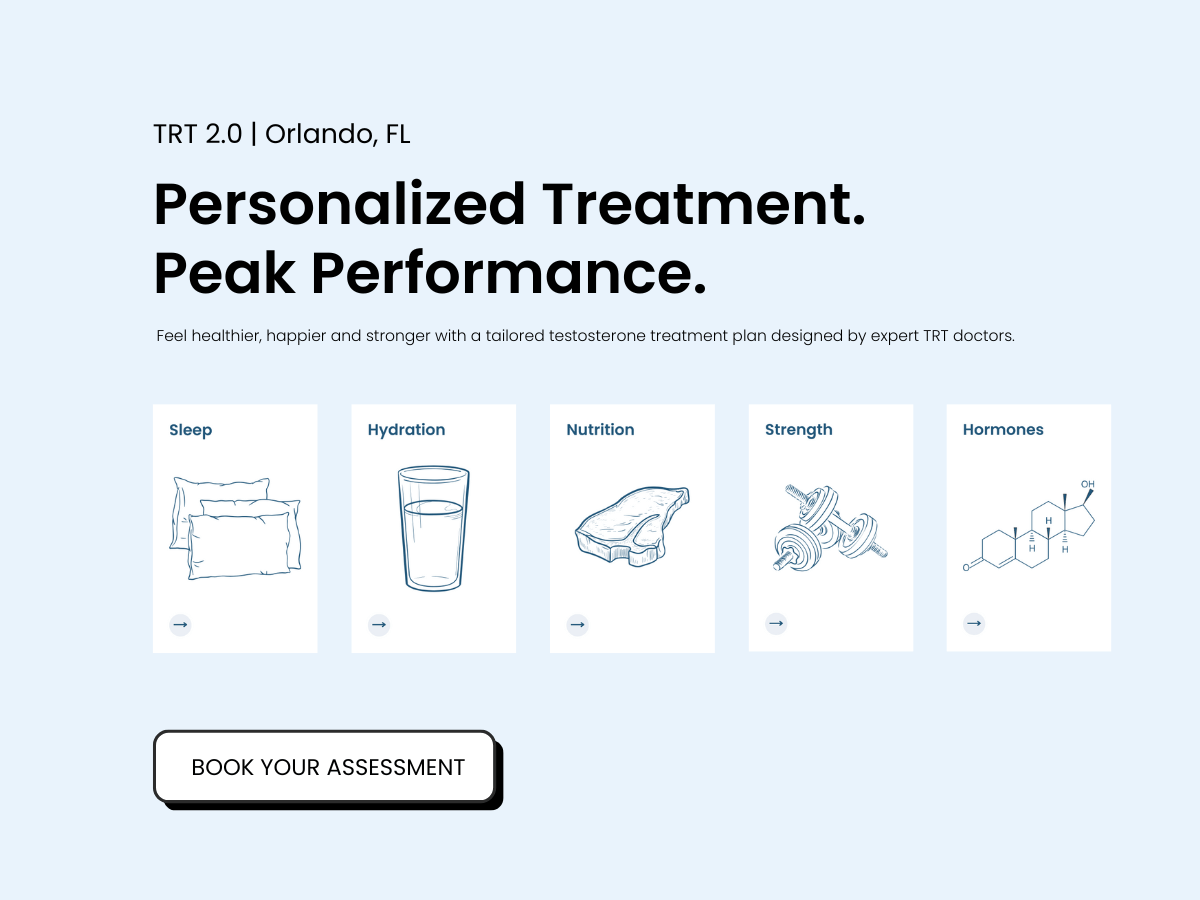5 Surprising Myths About Testosterone Therapy You Need to Stop Believing
In 30 seconds…
Testosterone Replacement Therapy (TRT) is often misunderstood due to persistent myths that create hesitation among men who could benefit from it. From fears of “roid rage” to misconceptions about age and cancer risks, these myths are debunked by scientific evidence showing TRT as a safe, customizable treatment for low testosterone. Atlas Method combines cutting-edge science and personalized care to help men reclaim their energy, confidence, and vitality while ensuring all decisions are based on facts, not fear.
Myth #1: Only Older Men Need TRT
The Reality:
Low testosterone isn’t just a problem for men over 50. Stressful lifestyles, poor sleep, and environmental factors can lead to low testosterone levels in younger men, even in their 30s or late 20s. Studies highlight how modern stressors contribute to earlier hormonal imbalances. Check your symptoms to find out whether you’re a good candidtae for TRT. (Travison et al., 2007)

Myth #2: Once You Start TRT, You’re On It Forever
The Reality:
TRT isn’t a lifelong commitment for everyone. For some, it’s a temporary measure while addressing underlying issues such as weight management, erectile dysfunction or sleep hygiene. We can work with you to determine if TRT is a short-term or long-term solution. (Bassil et al., 2009)
Myth #3: Testosterone Therapy Causes Aggression and “Roid Rage”
The Reality:
The idea of “roid rage” is rooted in misconceptions about anabolic steroid abuse, not TRT. Properly managed TRT restores testosterone to healthy levels and has been shown to stabilize mood, reduce anxiety, and alleviate depression. (Zarrouf et al., 2009)
Myth #4: Testosterone Therapy Will Give You Huge Muscles Overnight
The Reality:
TRT helps optimize testosterone levels, supporting increased muscle mass and strength, but it doesn’t replace the need for exercise or healthy habits. Think of TRT as the foundation for achieving fitness goals rather than a shortcut. (Bhasin et al., 2001)
Myth #5: TRT Leads to Prostate Cancer
The Reality:
The outdated belief that TRT causes prostate cancer has been debunked. Recent studies show no direct link between well-managed TRT and increased cancer risk. Regular screenings and medical oversight ensure safe and effective therapy. (Morgentaler et al., 2015)
Why Understanding These Myths Matters
Misinformation about TRT creates unnecessary barriers for men struggling with low testosterone. Believing in these myths could mean missing the opportunity to regain energy, confidence, and overall quality of life. Education and professional guidance empower men to make decisions based on science, not fear.
Get the Facts, Get Your Life Back
At Atlas Method, our doctor supervised in clinic TRT programs are tailored to your needs and backed by the latest research. Whether you’re just starting to explore options or ready to take the leap, our team will guide you every step of the way. Say goodbye to myths and hello to the facts—your best self is within reach.
References
- Travison, T. G., et al. (2007). “A population-level decline in serum testosterone levels in American men.” Journal of Clinical Endocrinology & Metabolism. DOI
- Bassil, N., et al. (2009). “The benefits and risks of testosterone replacement therapy: a review.” Therapeutics and Clinical Risk Management. DOI
- Zarrouf, F. A., et al. (2009). “Testosterone and depression: Systematic review and meta-analysis.” Journal of Psychiatric Practice. DOI
- Bhasin, S., et al. (2001). “Testosterone dose-response relationships in healthy young men.” American Journal of Physiology. DOI
- Morgentaler, A., et al. (2015). “Testosterone therapy and prostate cancer: risk-benefit analysis.” Nature Reviews Urology. DOI

Atlas Method
Find Atlas Method at Ageless Health & Aesthetics in Orlando, just outside the Mall at Millenia.
4104 Millenia Blvd #111
Orlando, FL 32839



